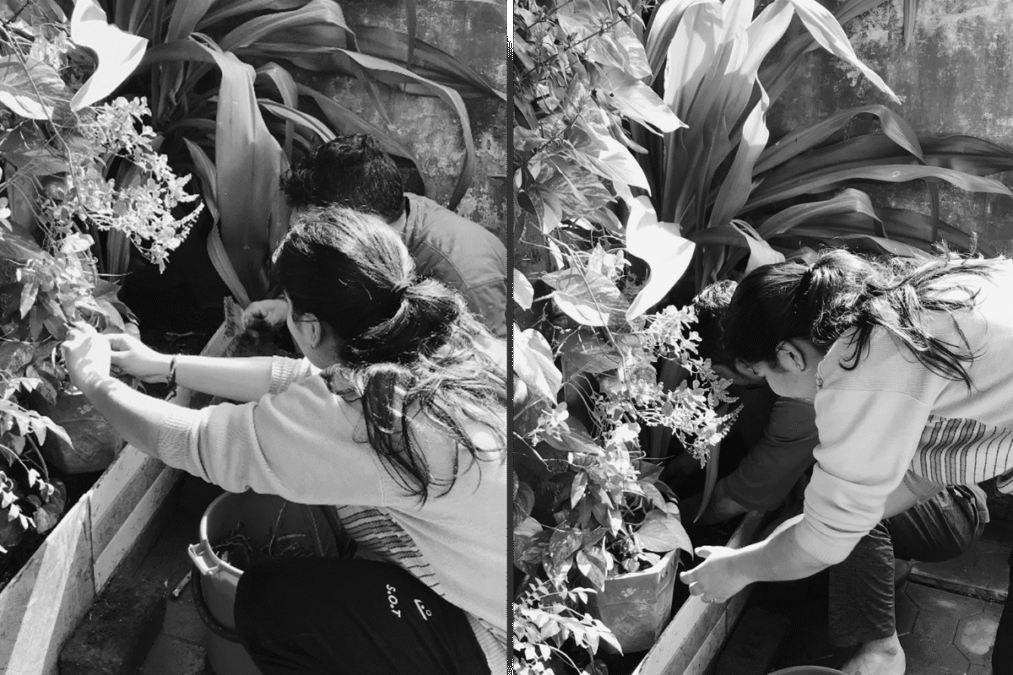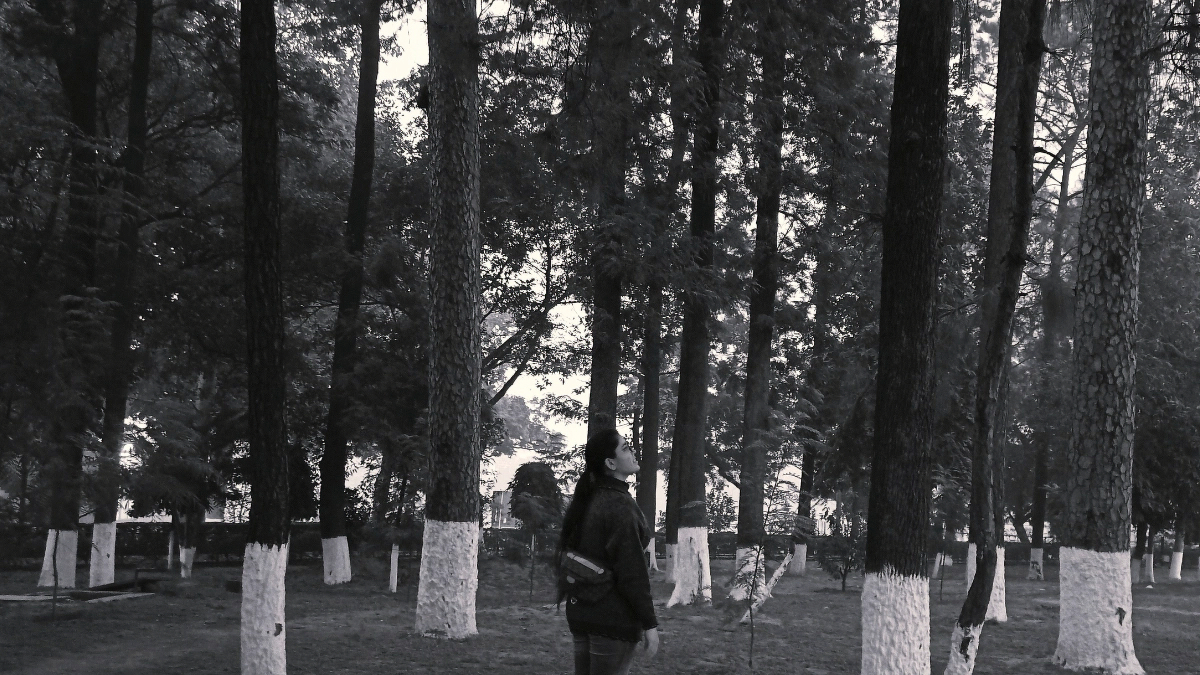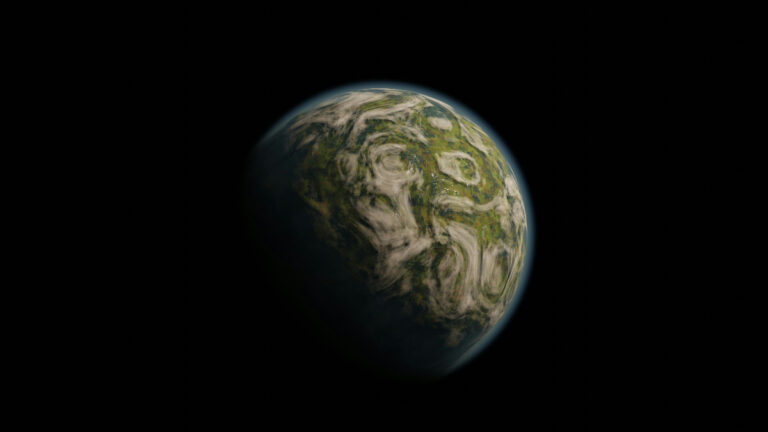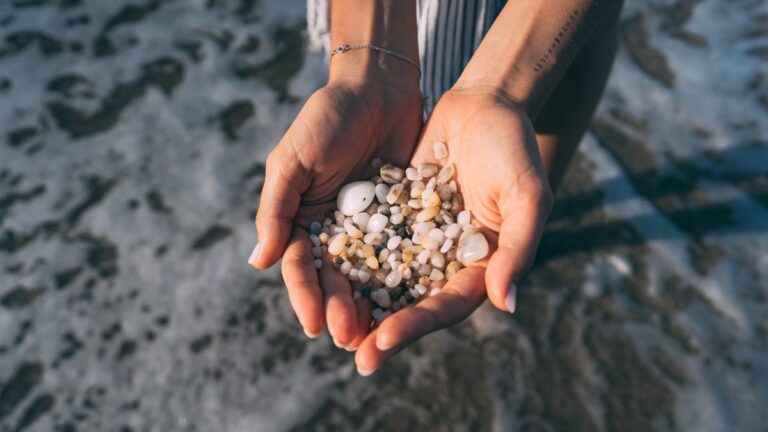By Dhruvi Sedha
Growing up in an Indian household, “sustainability” isn’t a buzzword; it was simply how we lived. “Kuch bhi waste mat karo,” (Don’t waste anything), my grandmother would remind us as she transformed leftover “chapatis” (Indian Flatbread) into delicious “churri” (I don’t have an English word for that) the next morning. Little did I know that these everyday practices were climate action in disguise.
When I was selected for the FXB Climate Advocates program, something shifted inside me. Climate change wasn’t just another global crisis happening somewhere far away – it became personal. The opportunity to develop a project that would reach at least 50 people felt both exhilarating and daunting. “Main kya kar sakti hoon?” (What can I do?) I wondered as I scrolled through the devastating news of floods, fires, and rising temperatures.
But that’s when I realised, the answer was already in my hands. Literally.
Microplastics: The Tiny Enemy in Our Everyday Lives
It started with milk packets. One morning, as I watched my mother cut open a plastic milk packet, I noticed tiny plastic shreds falling to the floor. Where would these go? Into our drains, into water bodies, into the stomachs of fish, and eventually, back to us.
“Rukiye, Mummy. Aise nahi” (Wait, Mom. Not like that), I said, showing her how to cut the packet in a way that prevented those microplastic pieces from escaping. Her eyes widened with realization, and soon, this became our family ritual – mindfully opening every plastic package, from chips to detergent.

This small act spread through our neighbourhood as I demonstrated this technique to the aunties during evening walks. It’s such a small thing, but “choti choti baatein bada fark la sakti hain” (small things can make a big difference), my neighbour remarked, now cutting her bread packets with newfound awareness.
The 21-Day Challenge: Turning Awareness into Habit
When we collaborated with Young Influx and lunched a cohort of the “21 Days Climate Consciousness Challenge” as part of my FXB project, I never expected 50 students from across the world to join in. Each day brought a new focus – from carbon footprints to food systems to digital consumption.
The carbon footprint calculation was humbling. Despite my family’s relatively modest lifestyle, our carbon impact was substantial. But instead of guilt, I felt motivation. The tree planting challenge connected me to something ancient and hopeful as I planted Tulsi (Holy Basil) in our balcony garden.

In our household, the refrigerator has become a carefully organised zone where nothing hides and nothing expires. I’ve labelled containers with “Eat Me First” signs and created a weekly meal plan based on what needs to be consumed.
During the food systems challenge, I realised that nearly 40% of food in India is wasted while millions go hungry. This contradiction fueled my determination. We now maintain a small notebook tracking everything we throw away – accountability that has reduced our food waste by almost 80%.
“Thali me jitna kha sakte ho, utna hi lo” (Only take as much as you can eat) has become our mealtime mantra, reviving traditional wisdom that understood sustainability centuries before it became trendy.
The bathroom was my next frontier. Those convenient tissues and cotton pads that we use once and throw away? They’re environmental nightmares. I introduced soft cloth pieces for cleaning, reusable cotton pads for skincare, and washable napkins for the kitchen.
“Pehle toh ajeeb laga” (It felt strange at first), my sister confessed, “but now I prefer cloth. It cleans better and feels less wasteful.”
The next challenge, the Carbon Cost of the Emails, was particularly eye-opening. Each email with an attachment produces about 50g of carbon dioxide. I spent that evening deleting years of unnecessary emails, feeling lighter with each click.
During the Fashion and Clothing challenge, I organised our first family clothing swap, where forgotten treasures from one closet found new life in another. My father’s puzzled expression as he watched us excitedly trade clothes was priceless—but even he contributed an old sweater that now keeps my cousin warm.
The Digital World Challenge coincided with a power outage in our neighbourhood. Instead of frustration, we experienced unexpected joy as we gathered on our terrace, spotting little birds flying over the sky.
“Kitna shaant hai” (How peaceful it is), my mother whispered as we listened to night sounds instead of notification pings. This unplanned digital detox inspired weekly technology-free evenings where we’ve rediscovered board games, storytelling, and simply being present with each other.
Eco-anxiety and Wellbeing challenge addressed something I’d been feeling but couldn’t name – that knot of dread when reading climate headlines, that helplessness when seeing polluted rivers.
I learned that action is the antidote to anxiety. Each plastic packet properly cut, each meal saved from waste, each conversation that spreads awareness—these aren’t just drops in the ocean. They’re ripples that extend outward in ways we can’t always see.
“Jab hum karte hain, toh darr kam hota hai” (When we act, fear diminishes), I wrote in my challenge journal that night.
As the 21-Day Challenge progressed, the participants became a global family, sharing struggles and victories across time zones.
We weren’t just changing habits – we were building a movement.
Climate action isn’t something I do anymore, it’s who I am. It’s how I shop, cook, travel, and connect. It’s in the questions I ask before purchasing and the conversations I initiate with strangers.
Young Influx’s 21 Days Climate Consciousness Challenge gave me tools and confidence, but the real transformation happened when I realised that meaningful climate action starts with my daily choices. As Mahatma Gandhi wisely said, “Be the change you wish to see in the world“—a philosophy that guides me through every milk packet cut, every food scrap saved, and every awareness conversation initiated.
We face an uncertain future, but I’m no longer paralysed by that uncertainty. Instead, I’m energised by the certainty that my actions matter, that collective change is possible, and that something as simple as cutting a plastic packet mindfully can be a radical act of hope.
Caring for the Earth is our responsibility – and it’s one I embrace with my whole heart, one small action at a time.




